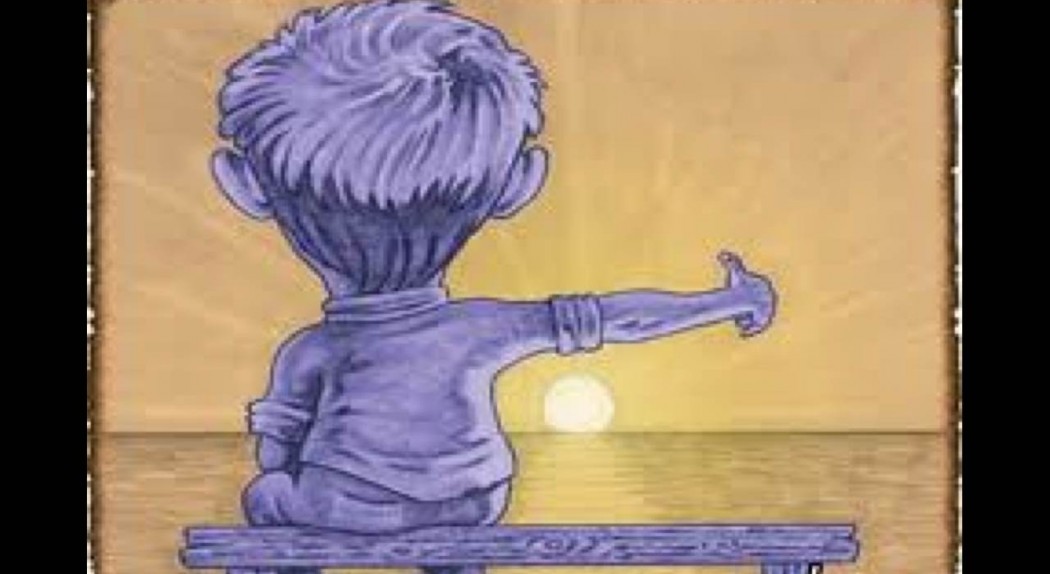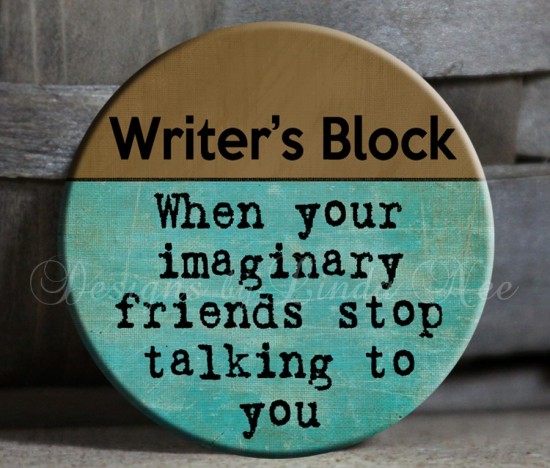Robert Drewe discovers that imaginary friends are the product of – well, vivid imaginations – and there’s nothing wrong with that…
I was quietly pleased to read the other day that child psychologists now think it’s great for young children to have imaginary friends. Phew. At last John Gordon can step out of the shadows.
John Gordon was my imaginary friend between the ages of about three and five. He was my age, looked like me, and had the same interests, though I always chose our games. He was luckier than me in one respect: he had a dog and I badly wanted one.
As a playmate, John Gordon sometimes needed help doing complicated things like climbing flights of stairs while carrying brimming glasses of water, and he didn’t appreciate being teased by my Uncle Ian when doing so.
“Whoops! I accidentally tripped up John Gordon,” my uncle said one day. “And there he goes, tumbling down the stairs! And he’s spilt his glass of water!”
John Gordon was inconsolable. And so was I. Even Jemmy, the imaginary dog, wasn’t too happy.
My son Jack used to have an imaginary friend called Datesy. Every morning as I walked him to pre-school, he’d point out a Range-Rover that was customarily parked nearby. “That’s Datesy’s car,” he’d say. “He and his parents are shopping in the supermarket. They’re buying eggs and carrots and shampoo.”
“They must like eggs and carrots,” I remarked after several weeks of the same story. “And have very clean hair.”
“Yes, they’re a healthy family,” he said solemnly.
One morning, as he was starting Big School, the Range-Rover wasn’t there. “I wonder where Datesy and his family are,” I said.
“Oh, their house burnt down,” he said matter-of-factly. “They’re all dead.”
“Mandy would much rather have imaginary friends who were real than real friends who were imaginary.”
― Rebecca McNutt, Smog City
A lawyer I know used to have an imaginary friend called Mr Dummy. Mr Dummy was a stockbroker who lived in Bellevue Hill and collected vintage cars. Already showing the character traits of the ultra-conservative lawyer he would become, the five-year-old was quite clear about this. Mr Dummy would often play Monopoly with him, but was always argued out of winning.
One day, presented with a baby brother, the budding lawyer had no further need of Mr Dummy as a playmate. Asked what had happened, he said dismissively, “Oh, him. He’s gone to live in Old Kent Road.”
The unfortunate Mr Dummy and the Datesy family notwithstanding, imaginary friends are now regarded by psychologists as beneficial to children. Once thought by some to be indicators of mental illness, fantasy characters are now seen to develop kids’ social, linguistic and cognitive skills.
A recent paper by La Trobe University and the University of Manchester concluded that children with imaginary friends were advantaged throughout their lives, grew up to be better communicators and were more creative and achievement-oriented.
The child psychologist John Rosemond told the Sydney Morning Herald that parents needn’t be concerned about young children telling fantastical stories – like a four-year-old insisting he rode a dragon and defeated an evil wizard.
“Some parents mistakenly think these stories are lies and must be punished, but this isn’t lying. By definition, lying is either harmful to other people or meant to deceive. A four-year-old who insists he rode a dragon and fought a wizard is guilty of neither.
“With a child this age who is otherwise functioning normally, this isn’t anything to be concerned about. They’re simply highly imaginative, and the imagination of a child is a thing to be treasured, especially in these digital times.
He had something to add: “Please, parents, don’t give pre-schoolers digital, screen-based devices to occupy themselves. There’s no evidence that these gadgets produce future computer geniuses, and growing evidence that they interfere with normal brain development. Young children need to be engaged in play that’s self-directed and open-ended.”
Young children also needed to play by themselves. The ability to regularly play independently for at least an hour at a time was the best marker of good development in a three-year-old. So if your youngster is playing in his room, chattering away as if there’s another child there (but you know there isn’t), don’t go and “check.” Leave well enough alone.
Many successful adults have had imaginary friends. The author A.A. Milne gave his character Christopher Robin a friend called Binker: “Binker — what I call him — is a secret of my own. And Binker is the reason why I never feel alone. Playing in the nursery, sitting on the stair, whatever I am busy at, Binker will be there.“
“See!” I remarked to John Gordon. He and I — and Jemmy, too — were very pleased to hear of all this. “We’re OK.”







